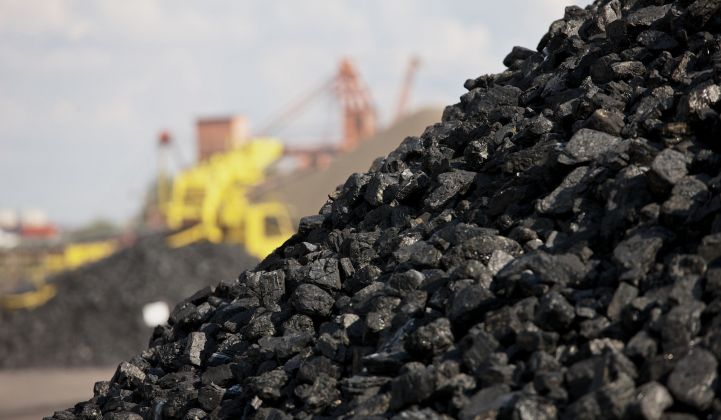Initial comments on Energy Secretary Rick Perry’s coal and nuclear directive are due October 23, with final comments due November 7. But the Federal Energy Regulatory Commission may take longer to mull its decision.
Comments from the FERC’s newly minted quorum indicate that Perry’s proposal to compensate coal and nuclear plants for stockpiling 90 days of fuel won’t glide through the commission.
FERC Chairman Neil Chatterjee is the most likely to favor Perry’s proposal, and indeed he has said he’s “sympathetic” to the idea. At a Tuesday speech at the Energy Bar Association’s Mid-Year Energy Forum, Chatterjee reiterated the value he sees in the proposal.
“The DOE NOPR contemplates and builds on FERC’s existing regulatory initiatives on price formation. It’s a conversation that I believe we need to have,” Chatterjee said. “We must ensure that we don’t find ourselves coming to regret not having asked hard questions like these amidst all the changes in the energy industry.”
But even that interest doesn’t necessarily equate to a speedy approval. Chatterjee on Friday said FERC has a multitude of options in addressing the request, including superseding the DOE NOPR, convening technical conferences to assess the proposal, and extending the comment period.
The commission must respond to the NOPR in the allotted 60 days, but a final decision is not required in that time. This week Perry said he expects an action from FERC in the “not-too-distant future,” but the timeline remains murky because of the options open to the commission. Considering the doubts expressed by other members of the commission, a final decision within 60 days is starting to seem unlikely.
“I agree with what I’ve heard Chairman Chatterjee say, in that if there were more steps to happen, they would require more process,” said member Cheryl LaFleur, an Obama appointee, on Tuesday. “No decision has been made to put that into law, but if you did, it would require quite a lot of articulation of how it would work.”
Both LaFleur and Robert Powelson, who joined the commission in August, have also recently picked at the thread about the 2014 polar vortex that Perry weaved into his testimony in front of a House energy subcommittee on Thursday. While speaking with lawmakers, Perry seemed keen to downplay the DOE NOPR as “a way to kick-start a national conversation,” while others view the proposal as unprecedented and highly disruptive.
LaFleur pushed back on the polar vortex arguments buttressing the request. "Two of the major markets have made significant market redesigns in response to the polar vortex, intended to make sure they had enough power at times of greatest system stress,” she said, adding that outages at the time "weren't all gas-related."
On Monday, at the American Association of Blacks in Energy policy summit, Powelson also called foul -- using a word that may become the “alternative facts” of the energy industry -- on myths surrounding performance from natural gas during the 2014 polar vortex.
“I can’t stand here and represent what we call a mistruth that the gas industry caused the interruptions of the polar vortex,” Powelson said. Last week, Powelson was more pointed in saying he didn’t accept his job as including actions that would shift markets. “When that happens, we're done. I'm done; I don't need this job."
With the deadline closing in, commissioners have a major decision to make on what a large coalition including solar, wind and natural gas organizations called “one of the most significant proposed rules in decades related to the energy industry.” As a result, we may not see the full scope of their decision revealed by November 7.
--
GTM, Wood Mackenzie and MAKE Consulting will sit down with former FERC Chairman Norman Bay at the U.S. Power & Renewables Summit in a few weeks. The event will take an in-depth look at how the renewable energy market will interact with the U.S. power market, and how those interactions can impact overall industry development and market growth. We’ll take an expansive view of key issues and timely topics, bringing together a diverse group of energy experts and stakeholders to discuss demand dynamics, economics and business model shifts, and policy and regulatory implications. Join us!




